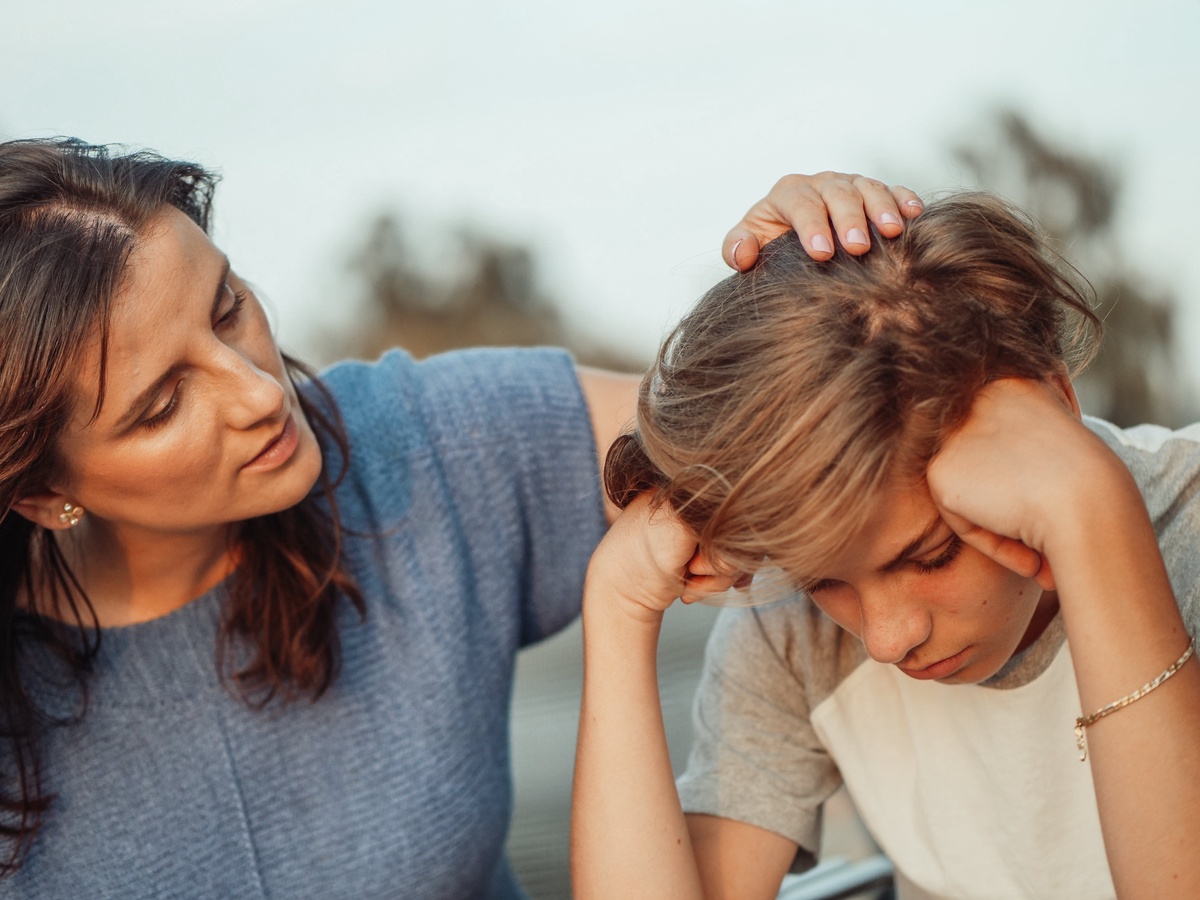Anxiety is a common mental health condition that is found in a majority of people around the world, not only for adults and teens but also children. This is when a person has “more than normal” fear, worry and nervousness in any situation, especially when stress and pressure are involved. Common anxiety triggers are stress, trauma, genetics and so on.
This can affect any person greatly whether it’s performance at work or school, making friends and even handling certain situations. So if you feel or worry that your child might have anxiety, below are the causes, symptoms and treatments you should enlighten yourself about:
What are the causes of child anxiety?
Numerous factors cause anxiety in children, but to give you an idea, here are some of the most common & main causes of child anxiety to consider:
- Genetics - If a child has relatives with anxiety, the chances of them inheriting this mental condition are pretty likely.
- Personality traits - Some children may have temperamental traits that make them more sensitive or anxious in particular circumstances. These temperamental qualities can affect how kids react to their surroundings, affecting how they feel and activities in different social and educational settings.
- Environmental factors - Children can become anxious as a result of stressful life events, which can include big life transitions like relocating to a new place, going through a parental divorce, adjusting to changes in school, or going through horrific experiences.
These occurrences upend children's sense of security and stability by upsetting their normal routines and surroundings, which can lead to a variety of anxiety-related symptoms and behaviours.
- Brain chemistry - Anxiety disorders have been linked to changes in neurotransmitter function, especially those involving important chemical messengers such as dopamine and serotonin.
Variations in the amounts or functioning of these neurotransmitters might alter brain communication networks related to regulating mood and processing of emotions, possibly resulting in increased anxiety symptoms and the emergence of anxiety disorders.
- Medical condition - Some medical diseases, ranging from thyroid issues to long-term illnesses, have been found to play a role in the development or worsening of anxiety symptoms in children.
- Parenting style - A child's risk of developing anxiety may be increased by overly critical or protective parents.
What are the symptoms of anxiety in children?
There are 3 main symptoms to consider: Emotional, physical and behavioural. Now your child might not exhibit all the symptoms but getting a good amount of symptoms crossed off may be a sign to get your child checked by a child psychologist.
Emotional Symptoms:
- Irritability or constant mood swings
- Frequent crying
- Worrisome in most situations
- Having separation anxiety with partners and caregivers
- Having a hard time focusing or making decisions
Physical Symptoms:
- Restlessness or fatigue
- Aches (stomach & head without medical issues)
- Muscle tension
- Sweating
- Nauseousness
- Shortness of breath or rapid heartbeat
Behavioural Symptoms:
- Tantrums or outbursts
- Perfectionist or needs constant reassurance
- Avoidance of certain situations
- Clinging behaviour
- Reluctance to go to school
- Insomnia or nightmares
What are treatments for child anxiety?
There are 6 main and effective ways to treat anxiety. To give you an idea of what these 6 treatments are, here is a list and how they can help children with anxiety:
- Therapy - For childhood anxiety disorders, cognitive-behavioral therapy (CBT) is the most successful treatment. Through exposure treatment, CBT assists kids in recognising and disputing illogical ideas and beliefs, creating coping mechanisms, and progressively facing their fears.
- Medication - When treatment alone is not adequate to manage severe anxiety symptoms, a prescription for medication may be issued. SSRIs, or selective serotonin reuptake inhibitors, are often prescribed drugs for anxiety problems in children.
- Parental support & education - A caring and affirming atmosphere may be fostered for children with anxiety by teaching parents supportive parenting techniques and educating them about anxiety disorders. You can even take “educating yourself” a step further by taking a child anxiety course online or even attending webinars & seminars.
- Lifestyle changes - Promoting healthy lifestyle practices including consistent exercise, enough sleep, a balanced diet, and relaxation methods can enhance other therapeutic modalities and advance general well-being.
- School-based interventions - Reducing academic and social stresses can be achieved by working with teachers and school counsellors to develop support systems and modifications for students who experience anxiety in the classroom.
- Support groups - Making connections between anxious kids and peer networks or support groups might help them feel less alone by offering them encouragement, affirmation, and a sense of community.
Take away
To properly manage children's anxiety and avoid long-term detrimental effects on their mental health and functioning, early detection and intervention are crucial. Seeking assistance from a licenced mental health expert is vital if you think your kid is struggling with anxiety. They can accurately diagnose the condition and provide a customised treatment plan that is suited to your child's requirements.


No comments yet